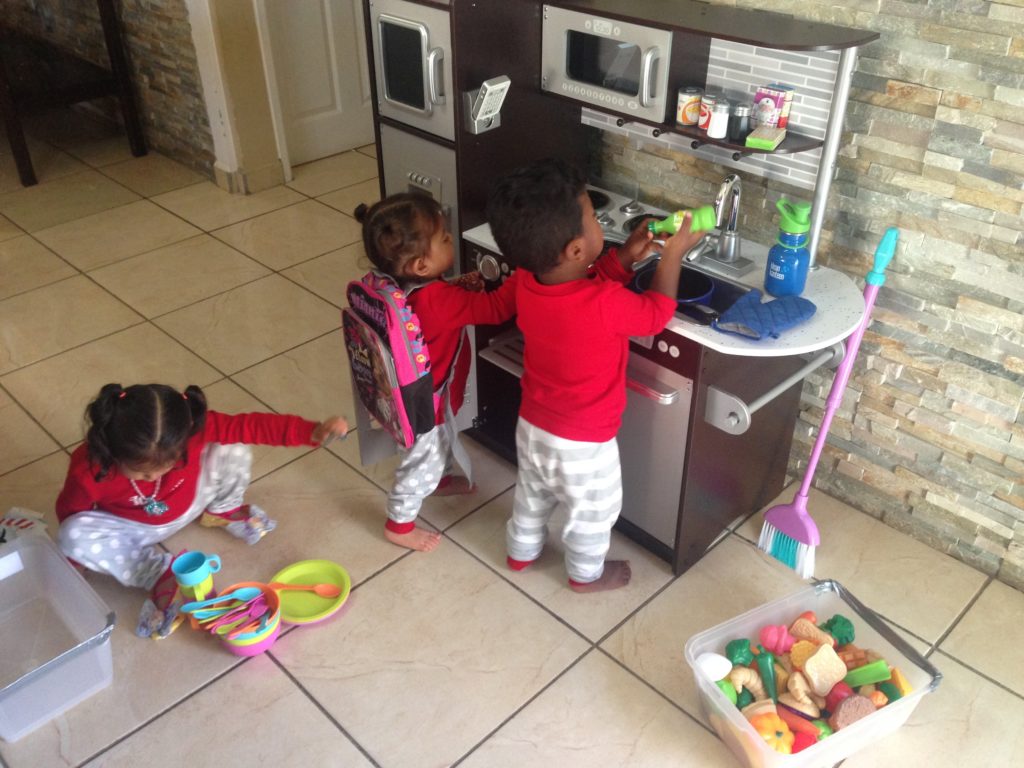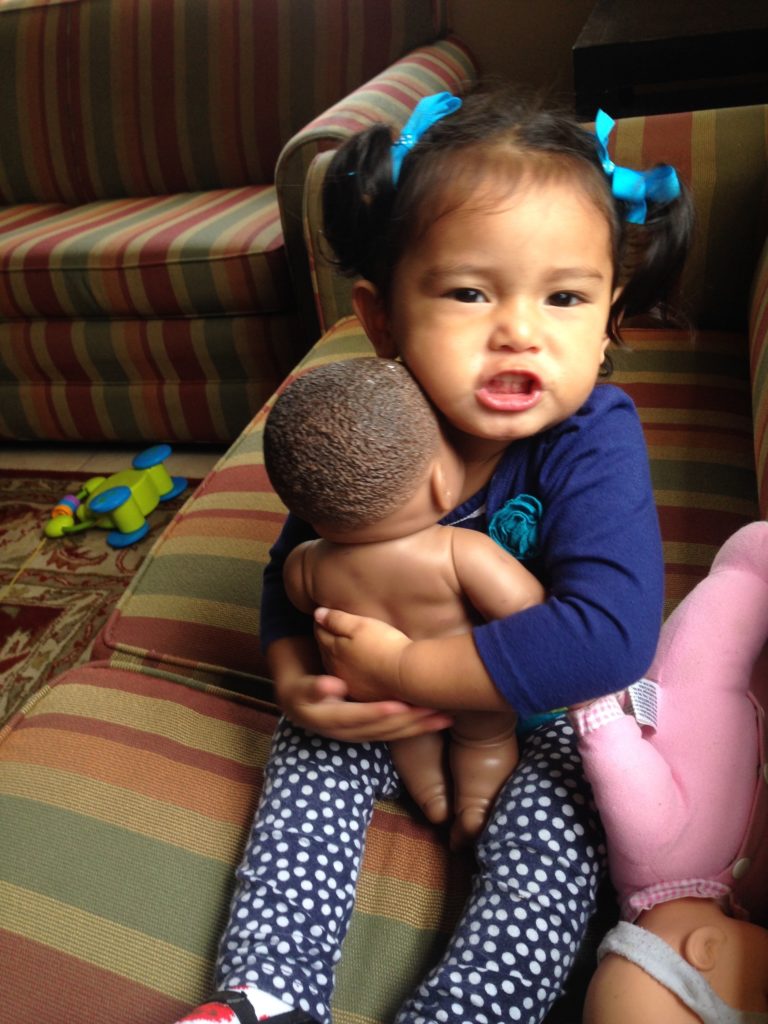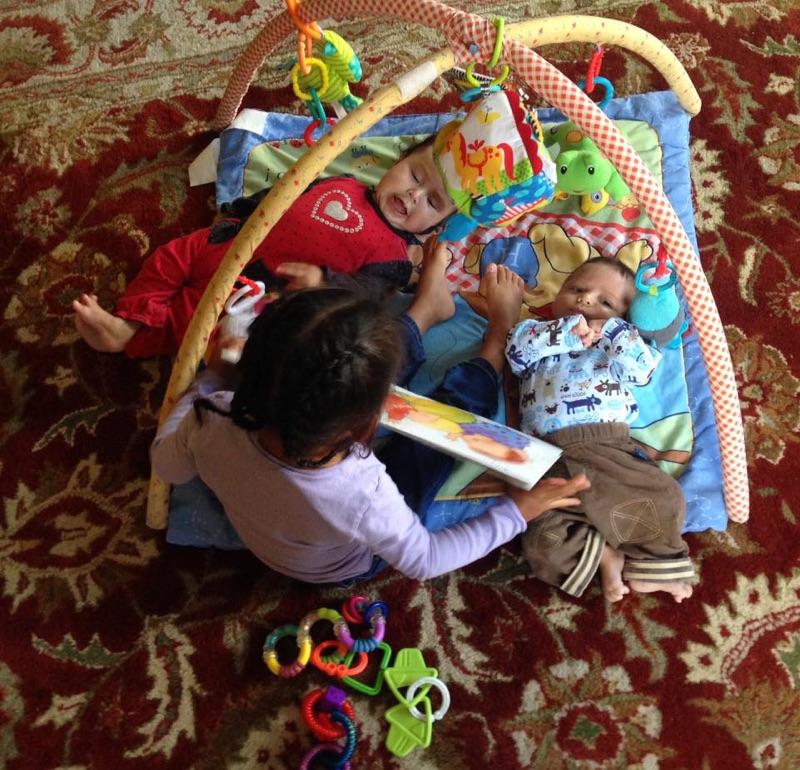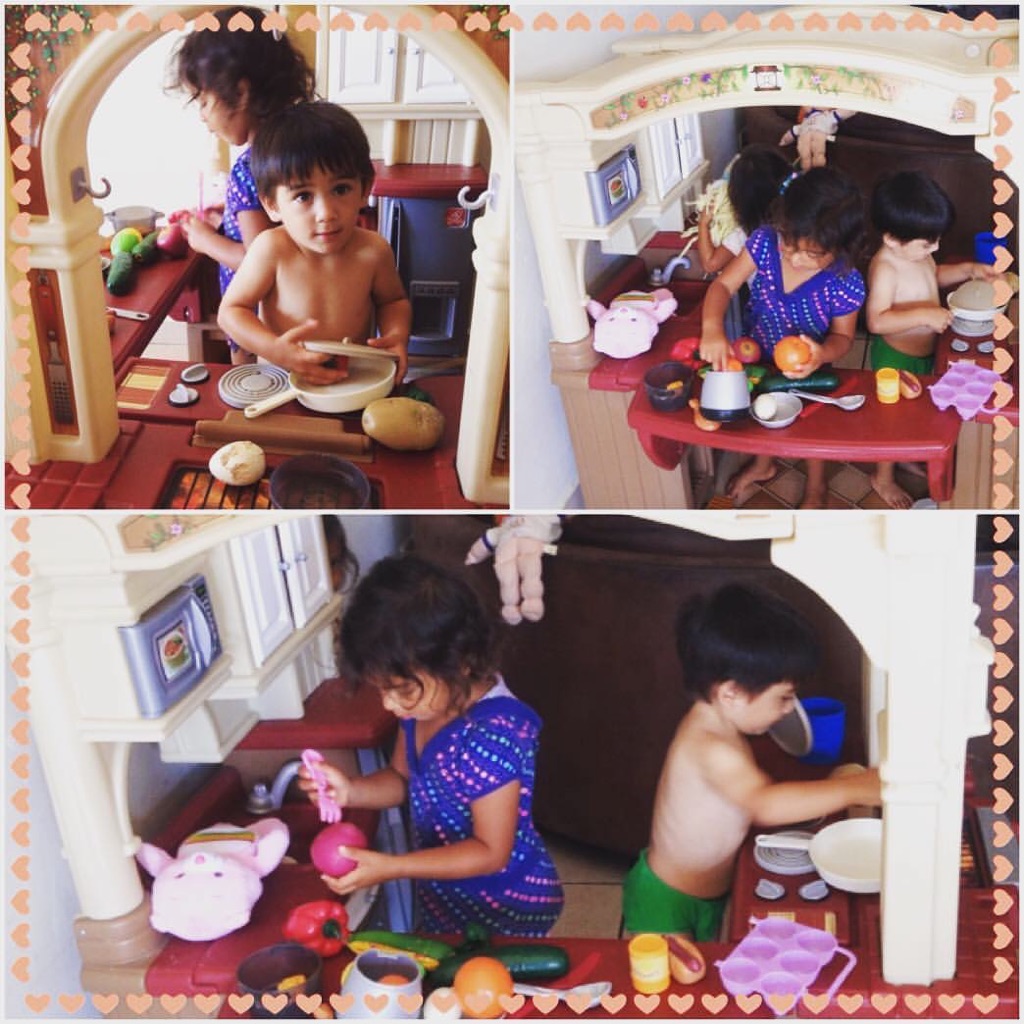“Okay, kids,” directed Ashlyn in her usual boss-of-everyone role, “It’s time to say your prayers and go to bed.” The others willingly complied, as they are familiar with these daily life events. Ashlyn instructed them in folding their hands and closing their eyes, and led them in a little prayer. “Okay, now it’s time for high-fives and kisses,” she said as she went around to the four other toddlers to cover them in a blanket as they lay “sleeping” on the living room floor.
As I watched what had just transpired, my eyes welled up (as they do a lot these days). They were modeling a family. Each member had an important role to play whether it was putting the little ones to bed, making the dinner or keeping the general peace for the sake of the longevity of their game. They were internalizing what they were seeing everyday–a healthy family that loved deeply. If these precious ones had grown up in an orphanage or on the street or in any of the many other situations we see everyday, would they still be able to model these positive family structures in their play?
Probably not.
And their childhood and their play will inevitably inform their adult life. Without being a part of a family, how would one learn how to BE a family or CREATE a functioning family?
Additionally, the thoughts of family might be a burdened idea that comes with a lot of trauma attached–how could that be a subject of play accompanied by positive thoughts for the future?
In an article titled “How Children Playing House Sets Them Up For Future Success” Brenna Hicks PhD, a licensed mental health counselor, stated, “Playing house is a fun hallmark of young playtime, but many lessons are learned through the process.”
Hicks outlines leadership, collaboration, and problem solving as skills children are practicing in this form of play. But even more than that, this type of play is largely based on modeling. Modeling what they see in their everyday life, as well as opening their imagination into worlds unknown.
“When your kids play,” Hicks noted, “their interactions serve to educate, inform, and affect their understanding of themselves and their worlds. Children playing house is an imaginative and fun approach to preparing for adulthood.”
Playing house isn’t just a game to pass the time. It means so much more than that. It means they have witnessed a family structure and had first-hand experience to be able to model key aspects of a functioning family.
It is so vital that we are able to provide that for our children–a chance to witness a family structure. Obviously there are so many other positives in caring for children in families, and if you’re reading this that most likely means you know this is what Legacy of Hope is all about, but it’s also important to remember that it is a gift to experience a loving family as a child for the purpose of raising up the FUTURE families. What I mean is, if a child is experiencing this family growing up, they will be more likely to be able to produce that themselves as an adult.
Yes, we all have certain things that we swear we won’t do as a parent because we hated that our parents did that with us, but on the larger scale these old adages apply in this context…
You are what you eat.
Or
Monkey-see-monkey-do.
Our goal is to demonstrate for our children what we want them to model not just at playtime, but also in their future.






